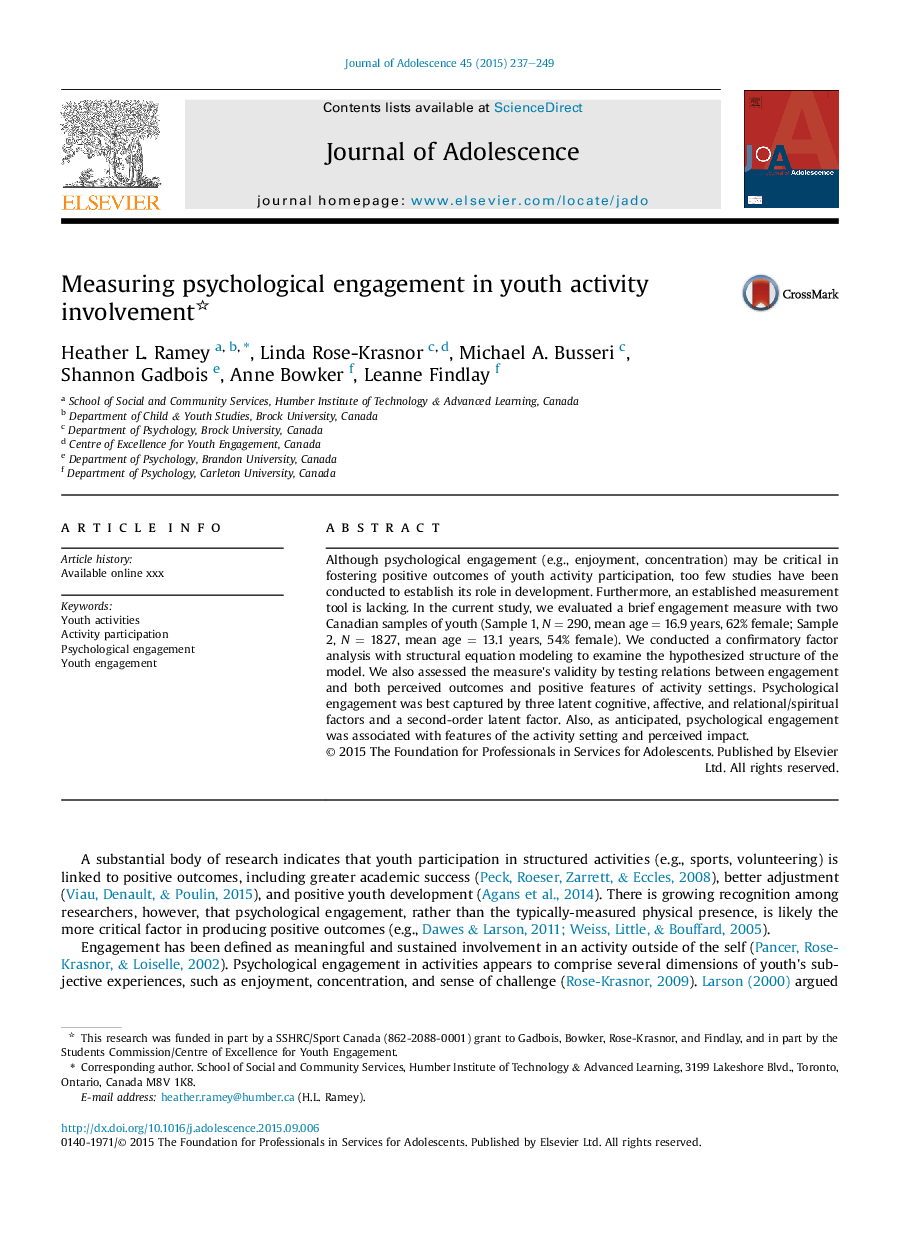| Article ID | Journal | Published Year | Pages | File Type |
|---|---|---|---|---|
| 7241423 | Journal of Adolescence | 2015 | 13 Pages |
Abstract
Although psychological engagement (e.g., enjoyment, concentration) may be critical in fostering positive outcomes of youth activity participation, too few studies have been conducted to establish its role in development. Furthermore, an established measurement tool is lacking. In the current study, we evaluated a brief engagement measure with two Canadian samples of youth (Sample 1, N = 290, mean age = 16.9 years, 62% female; Sample 2, N = 1827, mean age = 13.1 years, 54% female). We conducted a confirmatory factor analysis with structural equation modeling to examine the hypothesized structure of the model. We also assessed the measure's validity by testing relations between engagement and both perceived outcomes and positive features of activity settings. Psychological engagement was best captured by three latent cognitive, affective, and relational/spiritual factors and a second-order latent factor. Also, as anticipated, psychological engagement was associated with features of the activity setting and perceived impact.
Related Topics
Health Sciences
Medicine and Dentistry
Public Health and Health Policy
Authors
Heather L. Ramey, Linda Rose-Krasnor, Michael A. Busseri, Shannon Gadbois, Anne Bowker, Leanne Findlay,
